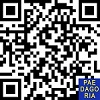BEBAN KOGNITIF: EXTRANEOUS COGNITIVE LOAD (ECL) SISWA YANG DIPENGARUHI OLEH E-LEARNING BERBASIS GOOGLE CLASSROOM
Abstract
Abstrak: Penelitian ini bertujuan untuk membahas pengaruh E-learning berbasis Google Classroom terhadap beban kognitif yang diterima siswa yaitu Extraneous Cognitive Load (ECL) siswa SMAN 1 Kampar dalam bentuk penelitian kuantitatif. Intrumen penelitian ini menggunakan kuisioner dan wawancara. Kuisioner disebarkan kepada 71 siswa SMAN 1 Kampar dan 1 orang guru mata pelajaran biologi. Hasil penelitian menunjukkan bahwa variabel penggunaan media pembelajaran E-learning berbasis Google Classroom pada siswa SMAN 1 Kampar yaitu sebesar 76,73 yang masuk dalam kategori baik. Variabel Variabel Extraneous Cognitive Load (ECL) pada siswa SMAN 1 Kampar Tahun Ajaran 2020/2021 yaitu sebesar 37,99% yang masuk dalam kategori rendah. Berdasarkan hasil perhitungan yang telah dilakukan ditemukan bahwa nilai signifikan sig. (2-tailed) antara Penggunaan Media Pembelajaran E-learning Berbasis Google Classroom (X) terhadap Extraneous Cognitive Load (ECL) Siswa (Y) adalah sebesar 0,25 > 0,05. Selanjutnya perbandingan diketahui nilai rhitung adalah sebesar -0,138 < rtabel 0,235. Karena rhitung atau pearson correlations dalam analisis ini bernilai negatif maka itu artinya hubungan antara kedua variabel tersebut bersifat berbanding terbalik atau berlawanan, artinya semakin besar nilai penggunaan media pembelajaran E-learning berbasis Google Classroom maka semakin rendah nilai Extraneous Cognitive Load (ECL) Siswa Kelas XI MIPA SMAN 1 Kampar Tahun Ajaran 2020/2021. Efektifitas Google Classroom dalam kegiatan belajar jarak jauh dapat mengurangi beban siswa dalam memahami materi pelajaran Biologi. Hal ini menunjukkan bahwa semakin meningkatnya penggunaan Google Classroom sebagai media pembelajaran jarak jauh dapat mengurangi beban Extraneous Cognitive Load.
Abstract: This research aims to determine the use of Google Classroom-based E-learning learning media on Extraneous Cognitive Load (ECL) students of class XI MIPA SMAN 1 Kampar for the academic year 2020/2021 in the form of quantitative research. The instrument of this research used questionnaires and interviews. Questionnaires were distributed to 71 students of class XI MIPA SMAN 1 Kampar and 1 teacher of biology. The results showed that the variable of using Google Classroom-based E-learning learning media in class XI MIPA SMAN 1 Kampar for the 2020/2021 academic year was 76.73 which was in the good category. Extraneous Cognitive Load (ECL) variable in class XI MIPA SMAN 1 Kampar Academic Year 2020/2021 concluded that the Extraneous Cognitive Load (ECL) variable in class XI MIPA SMAN 1 Kampar Academic Year 2020/2021 was 37.99% who entered in the low category. Based on the results of the calculations that have been carried out it was found that the significant value of sig. (2-tailed) between the use of Google Classroom-Based E-learning Learning Media (X) and Students' Extraneous Cognitive Load (ECL) (Y) is 0.25 > 0.05. Furthermore, the comparison is known that the value of rcount is -0.138 < rtable 0.235. Because the rcount or pearson correlations in this analysis are negative, it means that the relationship between the two variables is inversely or oppositely proportional, meaning that the greater the value of using Google Classroom-Based E-learning Learning Media, the lower the Extraneous Cognitive Load (ECL) value for Class XI students. MIPA SMAN 1 Kampar Academic Year 2020/2021. Effectiveness of Google Classroom in distance learning activities can reduce the burden on students in understanding Biology subject matter. This shows that the increasing use of Google Classroom as a distance learning medium can reduce the Extraneous Cognitive Load.Keywords
Full Text:
PDFReferences
Enriquez, M. A. S. 2014. Students’ Perceptions on the Effectiveness of the Use of Edmodo as a Supplementary Tool for Learning. DLSU Research Congress. https://doi.org/10.1017/CBO9781107415324.004 .
Ghozali, Imam. 2018. Aplikasi Analisis Multivariate dengan Program IBM SPSS. 25. Badan Penerbit Universitas Diponegoro: Semarang.
He, W., Xu, G., & Kruck, S. 2014. Online IS Education for the 21st Century, Journal of Information Systems Education
Hewi, La,. Muh. Shaleh, 2020. Kelekatan (Attachment) Anak Usia Dini di Suku Laut Kabupaten Wakatobi. Jurnal Obsesi : Jurnal Pendidikan Anak Usia Dini, Volume 4 Issue 1 (2020) hal 406-415.
Iftakhar, Shampa. 2016. Google Classroom What Works and How. International Journal of Education Sciences. Vol. III, No. 1.
Jamaluddin, D., Ratnasih, T., Gunawan, H., dan Paujiah, E. 2020. Pembelajaran Daring Masa Pandemik Covid-19 Pada Calon Guru: Hambatan, Solusi dan Proyeksi. LP2M.
Kusuma, A., dan Astuti, W. 2019. Analisis Penerapan Media Pembelajaran Bahasa Arab Berbasis Aplikasi Google Classroom. Jurnal Lahjah Arabiyah, 67-89.
Lexy, J Moleong. 2008. Metodologi Penelitian Kualitatif, Bandung: PT Remaja Rosdakarya
Meissner, B. dan Bogner, F.X. 2013. Towards Cognitive Load Theory as Guideline for Instructional Design in Science Education. World of Journal Education, 3 (2): 24-37
Milman, N. B. 2015. Distance Education. In International Encyclopedia of the Social and Behavioral Sciences: Second Edition. https://doi.org/10.1016/B978-0-08-097086- 8.92001-4
Moreno, R. dan Park, B. 2010. Cognitive Load Theory: Historical Development and Relation to Other Theories. Dalam Plass, J.L., Moreno R., and Brünken, R. (Eds.), Cognitive Load Theory (hlm. 9-28). Cambridge: Cambride University Press
Pangondian, R. A., Santosa, P. I., & Nugroho, E. 2019. Faktor-Faktor Yang Mempengaruhi Kesuksesan Pembelajaran Daring Dalam Revolusi Industri 4.0. In Seminar Nasional Teknologi Komputer & Sains (SAINTEKS) (Vol. 1, No. 1).
Rahmat, A., dan Hindriana, F, A. 2014. Beban Kognitif Mahasiswa Dalam Pembelajaran Fungsi Terintegrasi Struktur Tumbuhan. Jurnal Ilmu Pendidikan, hal: 1-18.
Sari, Eka Lesmana. 2020. Beban Kognitif Siswa Pada Materi Pencemaran Lingkungan Berbantuan Prezi Application. BIODIK: Jurnal Ilmiah Pendidikan Biologi Volume 6, Nomor 03 ISSN 2580-0922 (online), ISSN 2460-2612 (print)
Sicat, A. S. 2015. Enhancing College Students’ Proficiency in Business Writing Via Schoology. International Journal of Education and Research.
So, S. 2016. Mobile instant messaging support for teaching and learning in higher education. Internet and Higher Education. https://doi.org/10.1016/j.iheduc.2016.06.001
Sugiyono. 2018. Metode Penelitian Kuantitatif. Bandung: Alfabeta
Sweller, J. 2010. Cognitive Load Theory: Historical Development and Relation to Other Theories, Dalam Plass, J.L., Moreno, R., dan Brünken, R. (Eds.), Cognitive Load Theory (hlm. 29-47). Cambridge: Cambride University Press.
Sutiyan, O. S. J., Sutiyan, D. R. R. J., Adlin, Irawan, D., & Ardha, M. A. Al. (2022). Eksistensi Muhammadiyah Dalam Pengembangan Kompetensi Guru. At-Ta’lim: Media Informasi Pendidikan Islam, 21(2).
DOI: https://doi.org/10.31764/paedagoria.v14i2.14161
Refbacks
- There are currently no refbacks.
Copyright (c) 2023 Enos Lolang, Fadheela Salsabyla, Aris Suhud, Unan Yusmaniar Oktiawati, Almira Ulimaz

This work is licensed under a Creative Commons Attribution-ShareAlike 4.0 International License.
Paedagoria : Jurnal Kajian, Penelitian dan Pengembangan Kependidikan
Fakultas Keguruan & Ilmu Pendidikan | Universitas Muhammadiyah Mataram.
_______________________________________________
 | Paedagoria : Jurnal Kajian, Penelitian dan Pengembangan Kependidikan |
______________________________________________
CURRENT INDEXING:
EDITORIAL OFFICE:


















